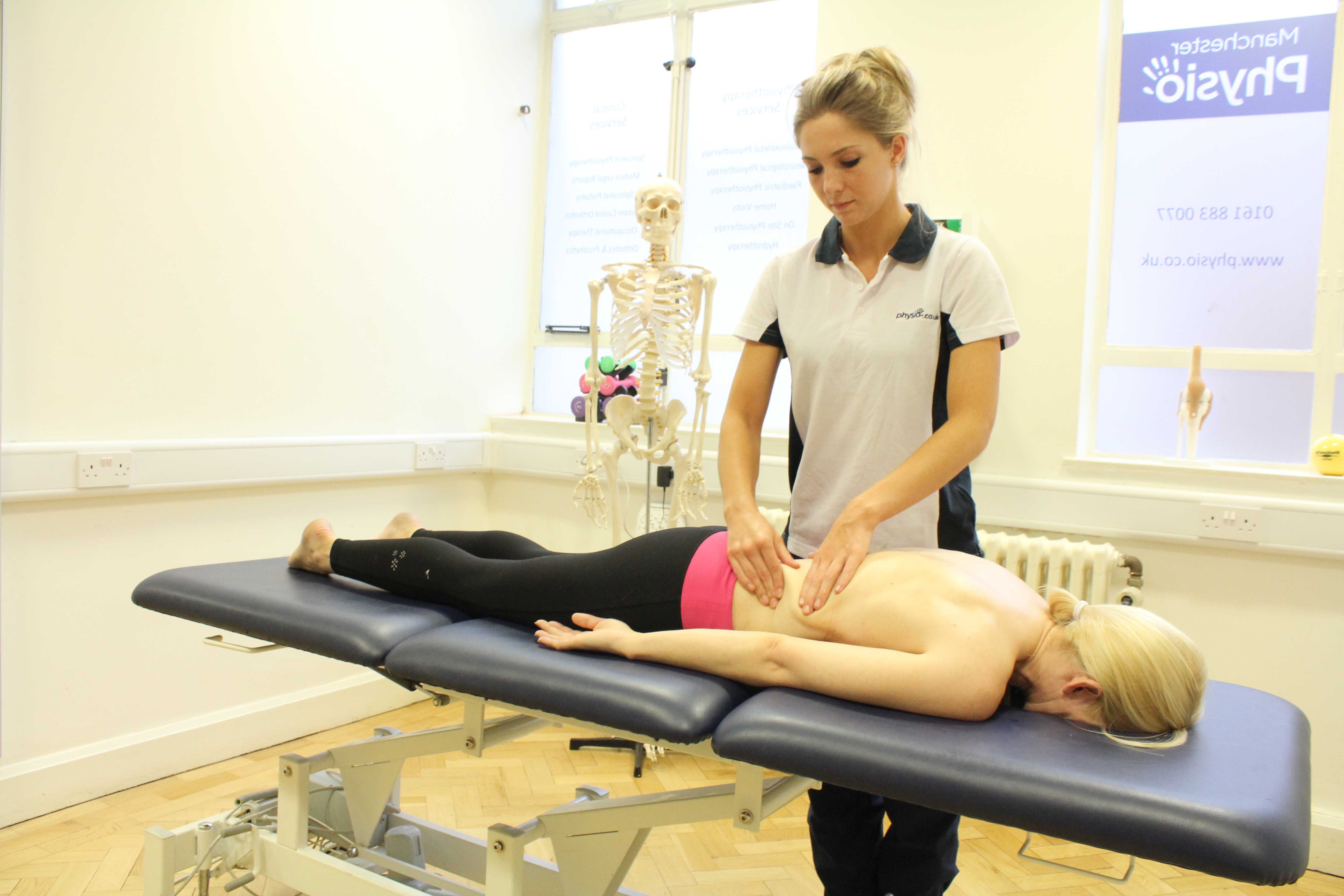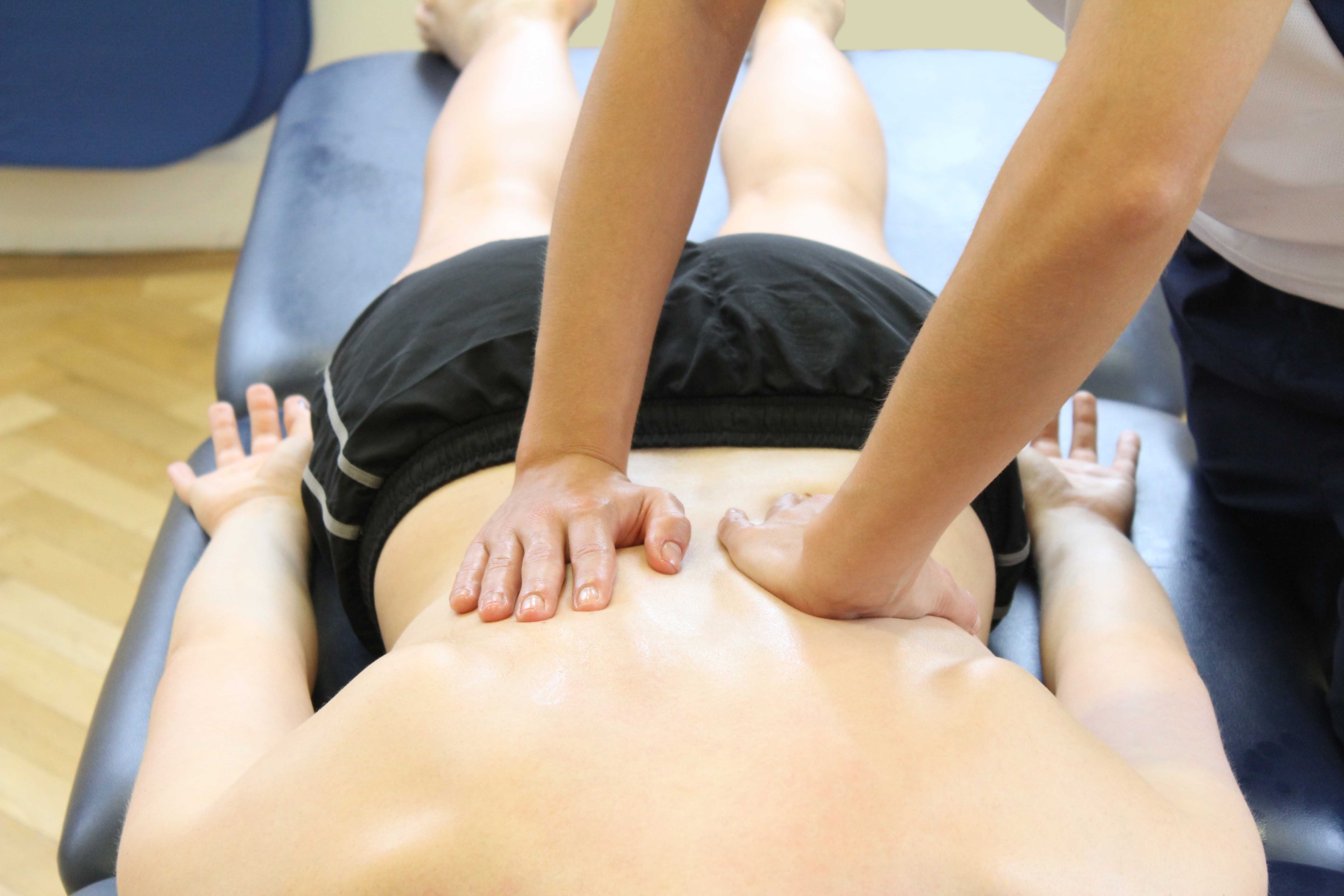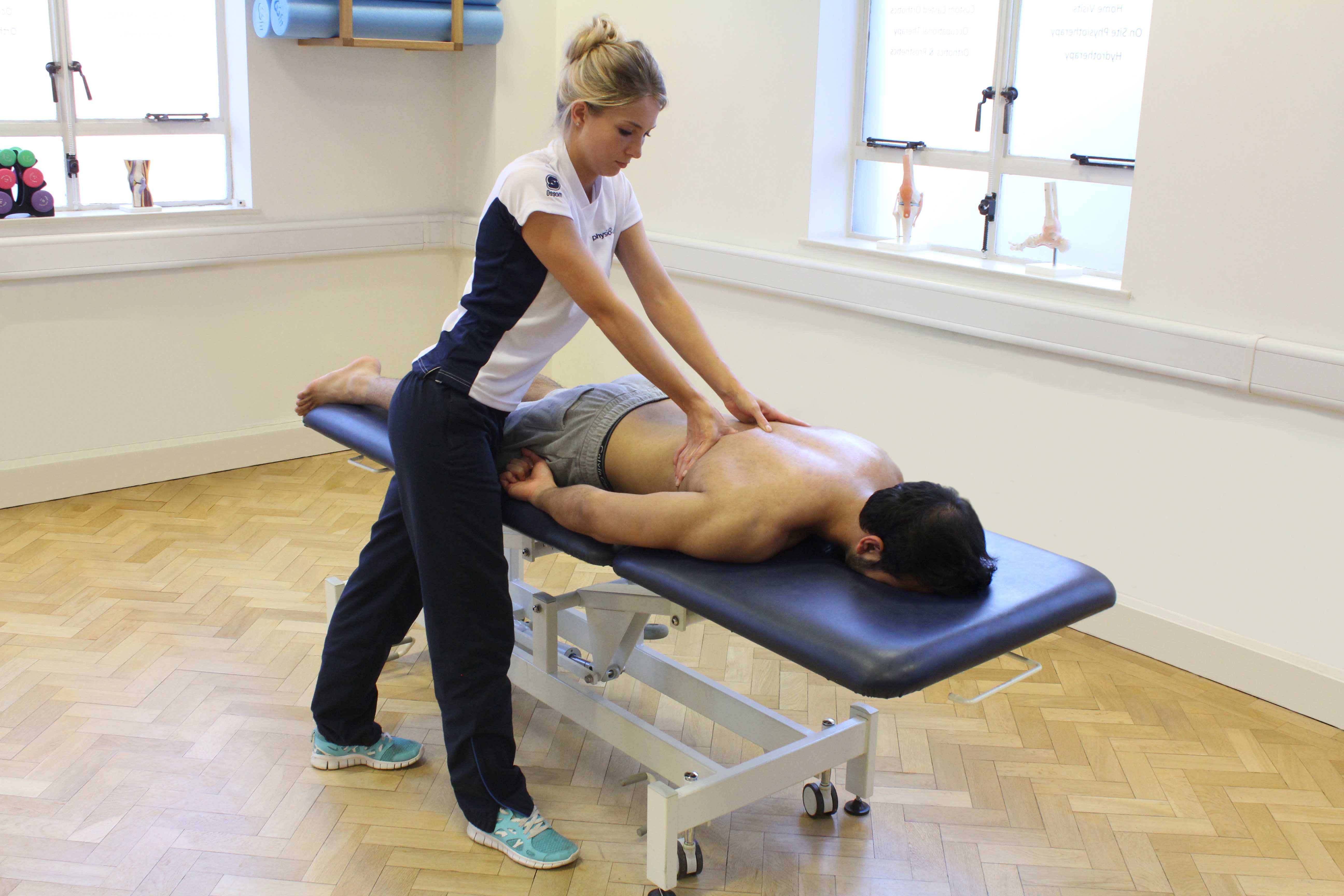What is ankylosing spondylitis?
Ankylosing spondylitis is a type of arthritis that is caused by inflammation of the joints in the spine. When the inflammation reduces, new bone forms in between the vertebrae causing the spine to fuse together which limits movement and can result in severe pain. Ankylosing spondylitis mainly affects young men in their twenties and thirties and is often genetic.
Physiotherapy is a successful way to treat the symptoms of ankylosing spondylitis and Physio.co.uk have experienced physiotherapists who can provide you with an individualised treatment programme to help manage your condition.
 Above: Massage and mobilisations of the bones and connective tissues of the lower back
Above: Massage and mobilisations of the bones and connective tissues of the lower backWhat are the symptoms of ankylosing spondylitis?
There are a number of symptoms that you may present with if you are diagnosed with ankylosing spondylitis. These are often experienced at different times and you may go many months before having a ‘flare-up’ where there are very few symptoms affecting you. Your physiotherapist at Physio.co.uk will discuss ways of managing your symptoms to help you continue with an active lifestyle. Symptoms of ankylosing spondylitis include:
- Low back pain
- Pain in the shoulders, neck, buttocks and back of the thighs
- Stiffness when moving
- Pain or redness in the eye
- Tiredness
- Anaemia
- Reduced ability to carry out normal activities of daily living
- Anxiety
- Weight loss
How is ankylosing spondylitis diagnosed?
There is no specific test that will confirm a diagnosis of ankylosing spondylitis and therefore a number of tests are often carried out to reach this decision. It is important that you seek advice from your doctor once you identify any of the symptoms. An early diagnosis will give you the best possible outcome from your treatments. Tests include:
- Blood tests
- X-rays
- Presence of any of the above symptoms for ankylosing spondylitis
 Above: Mobilisations of the spinal vertebrea to relieve stiffness
Above: Mobilisations of the spinal vertebrea to relieve stiffnessHow will physiotherapy help with ankylosing spondylitis?
Physiotherapy is very effective at relieving the symptoms of ankylosing spondylitis if it is tailored specifically to your needs. The experienced physiotherapists at Physio.co.uk will provide you with a full assessment of your symptoms which will help to create a personalised physiotherapy programme to work towards your goals. Physiotherapy may help in the following ways:
- Reduce pain
- Reduce stiffness in your joints
- Minimise fatigue (tiredness)
- Improve posture
- Increase strength and range of movement
- Improve cardiovascular fitness
- Return to normal activities of daily living/sport
What physiotherapy will be used for ankylosing spondylitis?
There are a number of different physiotherapy treatments that are useful in managing the symptoms of ankylosing spondylitis and your physiotherapist at Physio.co.uk will decide the best treatment options to suit you. Possible physiotherapy includes:
- Hydrotherapy
- Pain control modalities
- Strengthening exercises
- Range of movement exercises
- Cardiovascular activities
- Pacing advice
- Provision of specialist equipment that may help you around the home
- Gentle mobilisations
- Heat therapy
- Cryotherapy (ice)
- Postural exercises
- Electrotherapy (e.g. megapulse, ultrasound, TENS)
- Massage
- Splinting of painful joints
- Wax therapy
 Above: Trigger point massage of the thoracic vertebrea to relieve pain and stiffness
Above: Trigger point massage of the thoracic vertebrea to relieve pain and stiffnessSummary
Ankylosing spondylitis is caused by inflammation of the joints in the spine which is then replaced by new bone which can make the spine very stiff and painful. Ankylosing spondylitis can cause a variety of different symptoms including back pain, stiffness and extreme tiredness. Physiotherapy is a very effective way of managing these symptoms to help you return to your normal activities of daily living.
Physio.co.uk has specialist physiotherapists that are experienced in treating complex conditions like ankylosing spondylitis and will be able to work with you to develop a comprehensive and individualised treatment programme. Please call Physio.co.uk today on 0330 088 7800 to book an appointment, or alternatively book online today!

 0330 088 7800
0330 088 7800

































